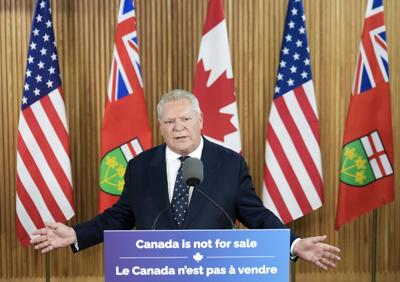Understanding the Alberta, Canada Separation Debate: Current Events and Perspectives
Alberta, Canada, has become a focal point for conversations about provincial autonomy and national unity. Recent political announcements have reignited the debate over Alberta's future within the Canadian federation. This article explores recent events, examines responses from political leaders, and considers what these developments mean for Albertans and the rest of Canada.

The Growing Call for an Alberta Referendum
In May 2025, Premier Danielle Smith declared her intention to hold a referendum on Alberta's separation from Canada if a citizen petition meets signature requirements. While Smith personally opposes leaving the federation, she emphasized that the decision ultimately rests with Albertans. Her proposal emerged amid longstanding disputes over natural resource policies and federal-provincial relations, specifically regarding Alberta's energy sector.
Smith's speech outlined the need for a new agreement with Ottawa to protect Alberta's interests. If ongoing federal policies continue to hinder the province, she indicated that Albertans would have their say. Read more about the proposed referendum and the premier’s stance on ABC News.
Political Response Across Canada
The possibility of an Alberta, Canada, separation referendum has sparked reactions nationwide. Leaders from other provinces urge unity, arguing that current circumstances require collaboration between regions. Ontario Premier Doug Ford voiced his concerns, stating that this is a time to "stand united, not talk of separation." Prime Minister Mark Carney echoed similar sentiments, advocating for a strong, united country especially given challenges like trade disputes and economic pressures.
In contrast, support for Alberta's push has emerged from unexpected corners. The leader of the Parti Québécois, Paul St-Pierre Plamondon, endorsed Smith's assertive stance, viewing it as a positive example of provincial autonomy. Quebec's experience with its own referendums offers an important parallel, reminding Canadians of past unity challenges. Explore Doug Ford and Paul St-Pierre Plamondon’s perspectives on The Star and The National Post.
What Do Albertans Think?
Public opinion within Alberta remains divided. Recent polling indicates that around 29% of Albertans support the idea of greater sovereignty or outright independence, while a clear majority prefers to remain part of Canada. Many residents express frustration over federal legislation impacting their livelihoods, particularly in oil and gas industries. Others, meanwhile, believe that working through the current system is the best path forward for growth and prosperity in Alberta.
The Future of Alberta, Canada
The ongoing debate over Alberta, Canada, and its relationship with the rest of the country spotlights the complexities of Canadian federalism. As discussions progress, the outcome will depend not only on public sentiment within Alberta but also on the responses from national leaders and other provinces. Whether through negotiation or referendum, Alberta's future remains a topic of significant national interest.
Conclusion
The situation in Alberta, Canada, offers an important window into the balance of regional autonomy and national unity. By examining recent proposals, political reactions, and public opinion, Canadians can gain a deeper understanding of the issues at stake. Stay informed as Alberta's debate unfolds and shapes the future of Canada as a whole.